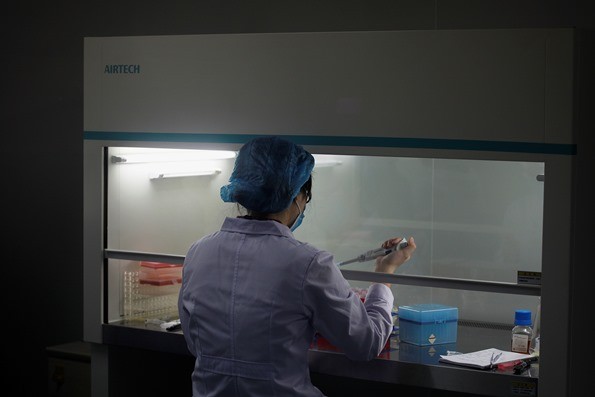Yu Min, a Chinese nuclear physicist who was part of the country's first successful hydrogen bomb test, won the top science and technology award in China.
Yu was born on the north of China's Tianjin in 1926. He was one of the pioneers in China's successful hydrogen bomb test back in the 1940s Cold War.
President Xi Jinping bestowed the State Supreme Science and Technology Award to Yu, a faculty member of the Chinese Academy of Sciences, at a ceremony in Beijing.
"I accepted without hesitation," Yu mentioned.
The then-young scientist, who was studying nuclear theories, changed his focus to a surreptitious career after he was asked by the late Qian Sanqiang, "Father of China's Atomic Bomb," to research hydrogen bomb theories. His covert research career lasted for 28 years.
It was not until 1988 that the mission was declassified that his wife discovered what he has been doing.
"No one's name is indelible in history, but it is quite comforting to know that one has contributed to the motherland's prosperity," Yu stated.
Data show that 42 percent of Shanghai's research projects focused in the fields of medicine, health and pollution, which all have practical implications to people's daily lives. It also included research on new materials and the development of e-commerce platforms.
Fifty-four projects that involved Shanghai scientists and researchers won the State Science and Technology Prizes.
The city of Shanghai has projects that accounted for the 16.5 percent of all the prizes awarded. It had 13 years of consecutive double figures, according to the Shanghai Science and Technology Commission.
Other winners of the award went to Dr. Zhu Jianhong from Huashan Hospital for his valuable research in brain tissue repair. Dr. Dong Jian from Zhongshan Hospital was also awarded for his work on public health education on slipped discs or lumbar disc herniation.
The commission officials mentioned the increase of younger scientists and their innovative projects. Previously, the research scene was led by scientists in their '60s or '70. Currently, the leading ones are under 55 years old.
The youngest leading scientist, 43-year-old Guan Haibing of Jiao Tong University, has developed technology in cloud computing services.



























